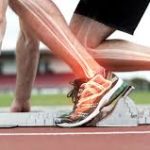If you experience lower back pain, you are not alone. About 80 percent of adults experience low back pain at some point in their lifetimes. It is the most common cause of job-related disability and a leading contributor to missed work days.
Men and women are equally affected by low back pain, which can range in intensity from a dull, constant ache to a sudden, sharp sensation that leaves the person incapacitated. Pain can begin abruptly because of an accident or it can develop overtime because of repeated irritation.
Below are some common myths that often get mentioned when talking about back pain.
“Back pain is normal there is nothing I can do about it”
There is plenty that can be done to help back pain, however it is vital to know what is the cause of your back pain so it can be treated in the correct way. It may be something as simple as having a massage to reduce muscle tension, however it may be something complex that requires specific exercises and intensive rehab.
“Bed rest will cure my back pain”
This is often prescribed by GPs but it is one of the worst things you can do if you have back pain. Resting in bed can in fact cause the pain to get worse and often prolongs the problem. As soon as possible it is best to stay active and keep moving!
“If I work out I will never get back pain”
While movement and the right type of exercise can help to reduce the risk of developing back pain by strengthening the muscle that support our back, improving flexibility and joint motion, and helping to control your weight, the wrong type of exercise, the wrong equipment (i.e. footwear) and poor technique can all increase the likelihood of back pain occurring.
“I should avoid my normal activities until my back pain is gone”
Your normal activities should continue wherever possible and it is better to modify the activity in some way so you can continue doing it rather than stopping an activity all together. Research shows that you will recover more quickly from your pain if you continue work and recreational activities rather than avoiding activities.
“If I sit for long periods I will not get back pain”
It is very important that you regularly change position and move as much as possible to reduce your risk of back pain and assist in managing the onset of back pain. Spending some time standing, completing seated exercises and taking regular breaks is much better for your back than any sitting posture.
“I shouldn’t lift heavy objects as I will harm my back”
It is not necessarily how much you lift but it is the way you lift that determines risk. Ensure you use your legs, get close to the object and avoid twisting. Using these simple tricks will ensure you are not overloading your back.
Back pain is something that should not be ignored. It can be treated and you don’t need to just live with it. Seeking advice from an experienced physiotherapist will help you determine the cause of your back pain and the most appropriate treatment plan.



